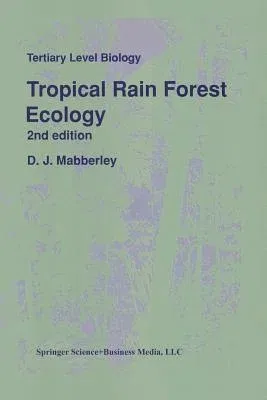D J Mabberley
(Author)Tropical Rain Forest Ecology (Revised)Paperback - Revised, 30 September 1991

Qty
1
Turbo
Ships in 2 - 3 days
In Stock
Free Delivery
Cash on Delivery
15 Days
Free Returns
Secure Checkout
Part of Series
Tertiary Level Biology
Print Length
300 pages
Language
English
Publisher
Springer
Date Published
30 Sep 1991
ISBN-10
0216931487
ISBN-13
9780216931480
Popular Books
Ships in
Description
Product Details
Author:
Book Edition:
Revised
Book Format:
Paperback
Country of Origin:
US
Date Published:
30 September 1991
Dimensions:
22.86 x
15.24 x
1.68 cm
Genre:
Ecology
ISBN-10:
0216931487
ISBN-13:
9780216931480
Language:
English
Location:
Dordrecht
Pages:
300
Publisher:
Series:
Weight:
421.84 gm













